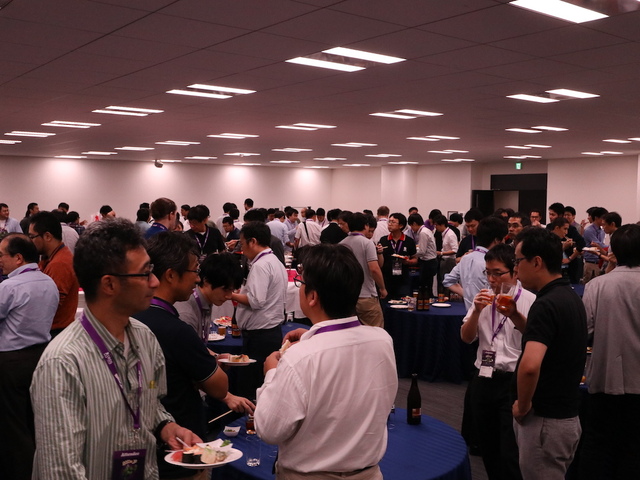The first officially licensed local ROSCon event, ROSCon JP 2018, was held in Tokyo, Japan on the 14th of September. ROSCon JP 2018 was held in conjunction with the Open Source Robotics Foundation.

189 people participated on the day (excluding sponsors' invitations and staff). The livestream had a steady 60 to 70 people watching at any one time throughout the day. Thanks to all the participants, ROSCon JP was an exciting day for all. Presentation slides and videos will be published on the website in a few weeks.
The invited talks from Brian Gerkey (Open Robotics) and Nicholas Yeo (ROS-Industrial Asia Pacific), 14 submitted talks, 13 lightning talks, 26 exhibitors' booths, and everything else about the conference was of high quality. Topics of presentation included
a presentation from Panasonic comparing navigation using the navstack with using commercial navigation system for hospital delivery robots;
the use of ROS in space robotics by JAXA;
the application of ROS and Gazebo to a marine robotics challenge (which finished with a surge in donations to the presenters' crowdfunding page to help them attend the next challenge); and
a discussion of how Sony applied ROS to the development of the newest Aibo. (Find out more at ROSCon 2018 in Madrid)
A catered lunch and reception and a popular exhibitors' hall provided many opportunities for participants to mix with each other and make new connections.

Sponsors
ROSCon JP 2018 was sponsored by the following companies and organisations:
Platinum: Sony
Gold: Renesas, Seqsense, Tier IV, iSiD, Analog Devices, TIS, SICK
Silver: eSOL, GROOVE X, EAMS Lab
Bronze: Honda Research Institute Japan, RT Corporation, Mamezou, INTEC, Robotis, Z Robotix
Friendship: Tokyo Opensource Robotics Kyokai Association
As our first event, we consider ROSCon JP 2018 to have been a massive success and a credit to the Japanese ROS user community.








